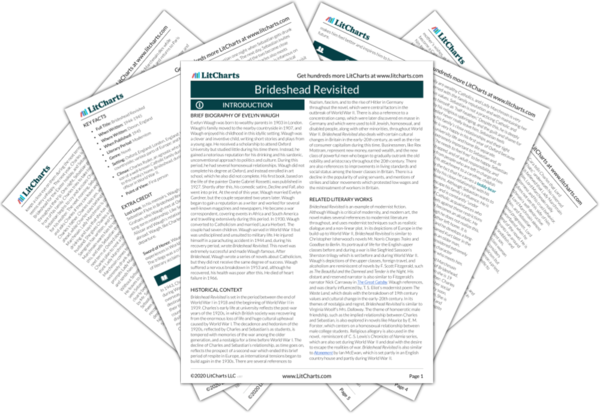LitCharts assigns a color and icon to each theme in Brideshead Revisited, which you can use to track the themes throughout the work.
Innocence, Experience, and Redemption
Suffering, Persecution, and Martyrdom
Authority, Rebellion, and Love
Globalization, Culture, and Modernity
